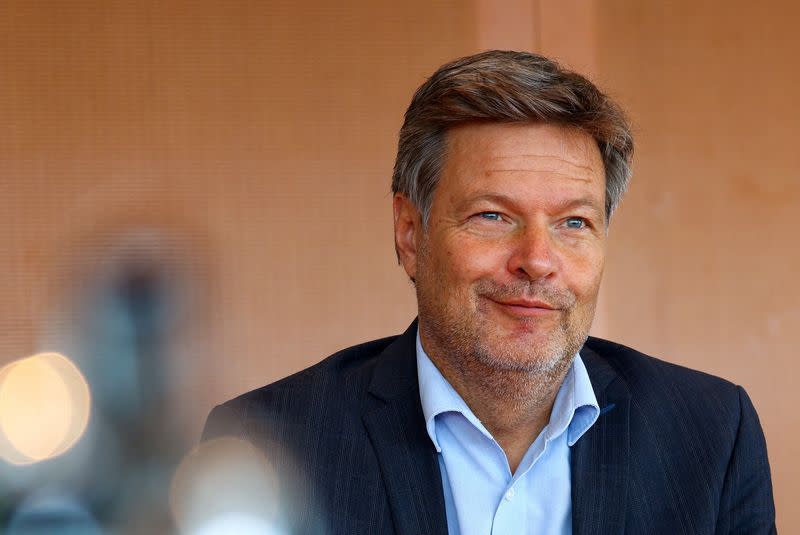Germany doesn't expect a solution to EU tariff tensions on China trip

By Maria Martinez
PAJU, SOUTH KOREA (Reuters) - In his trip to China, Germany's Economy Minister Robert Habeck doesn't expect to reach a solution on trade tensions after the EU threatened to impose steep tariffs on Chinese cars.
"We don't see any major opportunities," Habeck said on Friday in South Korea, the first stop of his East Asia trip. "There is no chance of the conflict being resolved in China."
Habeck's trip comes a week after the European Commission proposed tariffs of up to 38.1% on electric vehicle imports from China, marking a new low point in economic relations.
This week, Chinese automakers urged Beijing to hike tariffs on imported European gasoline-powered cars in retaliation.
The three-day visit is seen as an opportunity for Germany to seek consensus, some experts said, according to Chinese state-controlled tabloid Global Times.
On Friday, Habeck visited Panmunjom, the demilitarized zone between South and North Korea. Later on the day he will travel to Beijing, where he will first meet with ambassadors from different EU countries.
"I can't negotiate for the EU," Habeck said, noting that this is the task of the European Commission.
However, as Europe's largest economy, Germany's voice carries particular weight.
"I hope that it will be to set up solution-orientated formats in the near future," Habeck said. "If my trip can make a contribution to this, that would be good."
(Reporting by Maria Martinez; Editing by Kim Coghill)

 Yahoo Finance
Yahoo Finance 